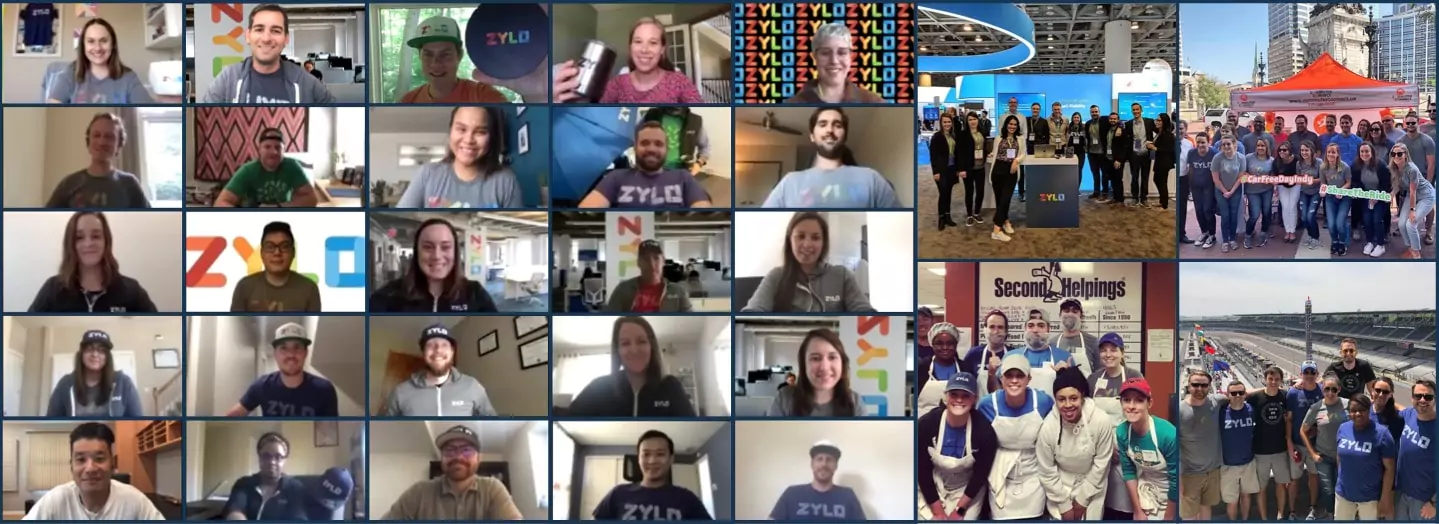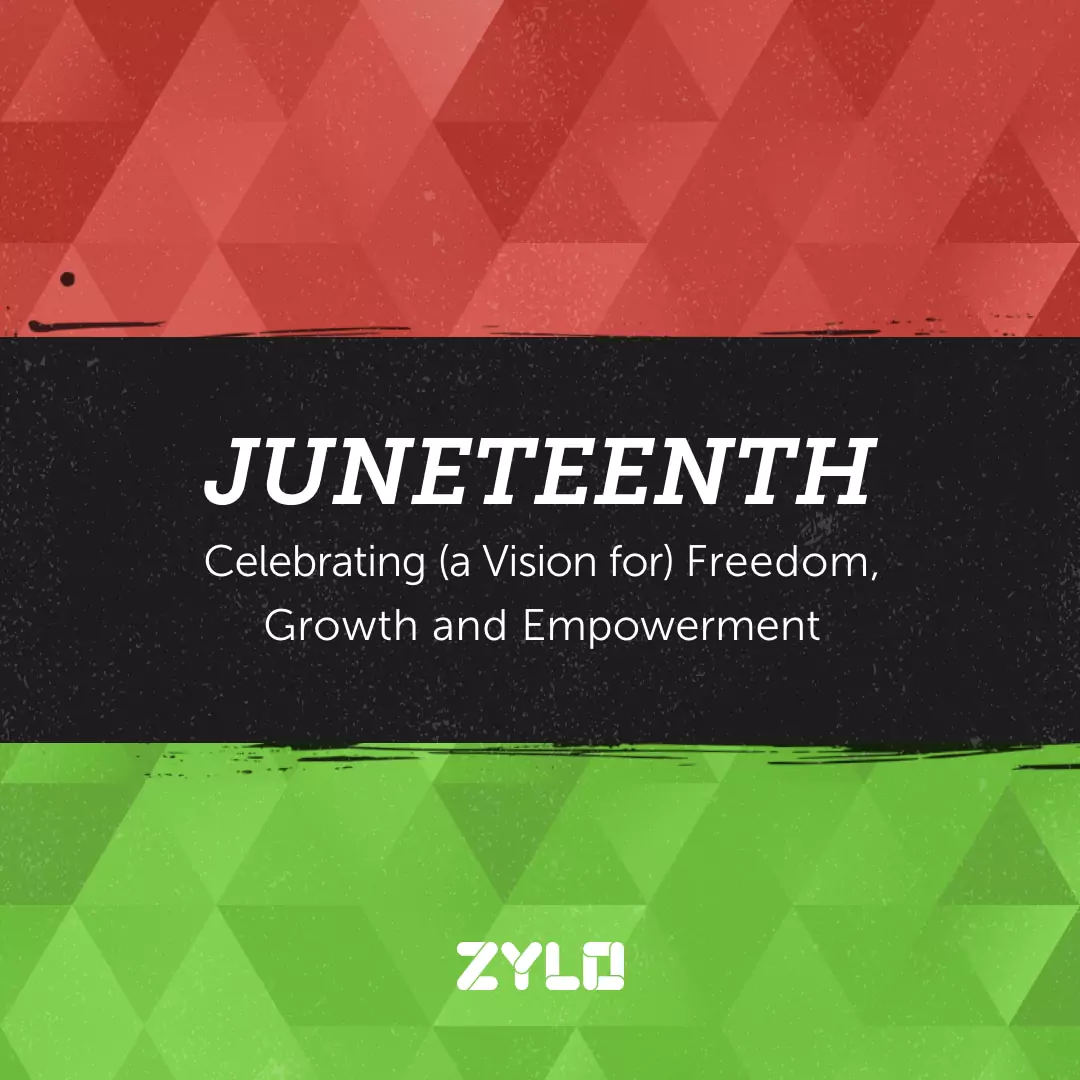
An Inside Look at Zylo’s Engineering Team
There’s never been a more exciting time to be an engineer...
Back
Back
Search for Keywords...
Zylife Blog

01/07/2021
As we enter 2021 with a greater awareness of the daunting challenges facing many in our communities, Zylo attempts to address the issues that we can.
Senior data analyst Janelle Crocket and data analyst Matt Reigsecker participate in Zylo’s culture committees. Their objective is to make the Zylo workplace a more diverse, inclusive, and equitable environment. Janelle leads the Community Outreach committee, and Matt is on the Meaningful Dialogue and Education committee.
As an organization and team, Zylo has long been dedicated to improving its community through regular volunteering efforts and our continued partnership with Pledge 1%. The events of 2020 highlighted the importance of racial justice and the need to strive for the long-term goal of improving diversity, equity, and inclusion for Zylo as a company and as a member of the community.
We sat down with Janelle and Matt to learn more about their efforts and how striving for diversity, equity, and inclusion impact Zylo’s culture.
 Janelle: One of the things that our CEO Eric Christopher brought up when the [Black Lives Matter] protests occurred in May, was a call for justice and equity – and that reflects our mindset both internally with our workforce and externally.
Janelle: One of the things that our CEO Eric Christopher brought up when the [Black Lives Matter] protests occurred in May, was a call for justice and equity – and that reflects our mindset both internally with our workforce and externally.
So, one of the key things is greater employee engagement. When you have a more diverse population, you can also improve how you reach solutions. If you have always had the same perspective when a problem occurs, it isn’t easy to develop new solutions.
It’s important to have a variety of perspectives to choose from, and diversity plays a key role in that. So there’s definitely a practical application to diversity, equity, and inclusion.
The other side of that is if you think that as a society, we continue to marginalize particular groups and not consider their perspectives, we’re going to reach a boiling point. Then things like the riots that happened last summer are going to occur. We must support diversity internally and externally to ensure that everyone knows they’re valued, appreciated, and heard.
 Matt: I think it’s also important to understand that not everybody’s from the same background and to change your approach to problems or issues – you don’t want people to feel left out. If you’re not aware of someone’s background, you may be saying or doing things that hurt them.
Matt: I think it’s also important to understand that not everybody’s from the same background and to change your approach to problems or issues – you don’t want people to feel left out. If you’re not aware of someone’s background, you may be saying or doing things that hurt them.
It just makes a better team to have that awareness while you’re working through problems and issues, especially if we have people from different backgrounds that don’t always feel included. Ultimately, these efforts lead to a stronger team, and everybody’s happier in the end when we’re inclusive.
I think empathy is part of that, too, understanding that people have different backgrounds. Other things are going on in people’s lives and the issues that they face every day. And if you’re not taking those into account, it’s not great for a community or a team.
Matt: I think diversity means a lot of things – it can be skin color, but it can be just someone’s background. I think it comes down to accepting those differences and understanding that people coming from different perspectives is really important.
Janelle: For me, diversity is more than skin color – it’s the diversity of experiences and backgrounds. It can be geographic; it’s also religious, it’s also sexuality, its educational levels – so there’s a wide span of what diversity incorporates.
Janelle: We know that the efforts are working or have been successful when part of that success is personal and individual growth that comes with continued self-reflection on things that we’ve done and ways to improve. There’s no finish line; it’s about constant learning, growth, and improvement.
Matt: Yeah, my Meaningful Dialogue group has some key metrics that we want to achieve, such as a certain percentage of the company involved in the conversations we are facilitating. We also have a survey where we ask participants questions and see how they’ve changed over time.
It’s always an ongoing effort – it’s hard to say if you’re successful or not because there’s always room for more improvement. I would not say we’re successful yet; it is a long journey that needs continued effort to be successful.
Matt: Part of it is having that management buy-in and people at the top showing how important it is and actually getting involved in these activities. I think it’s important that we’re consciously making it part of the culture and not just a side thing that’s “nice” to do.
It’s really important to have complete buy-in, especially from leadership, to make this initiative go forward because it’s challenging, and these conversations aren’t always easy. To get people on board, you really need to have a large push and get it to be part of the company’s stated mission to make an initiative like this work.
Janelle: He’s right: To ensure this effort is not just corporate messaging, you need buy-in across the company.
It’s critical to have a set definition of what diversity, equity, and inclusion means for Zylo. We can try to organize as many events or discussions as we want, but if we don’t have a solid perspective on why or what Zylo stands for, the events lose their meaning. Action without purpose is just an activity.

There’s never been a more exciting time to be an engineer...


Ryan Carman studied mechanical engineering before taking on business and data...

With our interest to keep the health of our team, families,...
| Cookie | Duration | Description |
|---|---|---|
| cookielawinfo-checkbox-analytics | 11 months | This cookie is set by GDPR Cookie Consent plugin. The cookie is used to store the user consent for the cookies in the category "Analytics". |
| cookielawinfo-checkbox-functional | 11 months | The cookie is set by GDPR cookie consent to record the user consent for the cookies in the category "Functional". |
| cookielawinfo-checkbox-necessary | 11 months | This cookie is set by GDPR Cookie Consent plugin. The cookies is used to store the user consent for the cookies in the category "Necessary". |
| cookielawinfo-checkbox-others | 11 months | This cookie is set by GDPR Cookie Consent plugin. The cookie is used to store the user consent for the cookies in the category "Other. |
| cookielawinfo-checkbox-performance | 11 months | This cookie is set by GDPR Cookie Consent plugin. The cookie is used to store the user consent for the cookies in the category "Performance". |
| viewed_cookie_policy | 11 months | The cookie is set by the GDPR Cookie Consent plugin and is used to store whether or not user has consented to the use of cookies. It does not store any personal data. |
